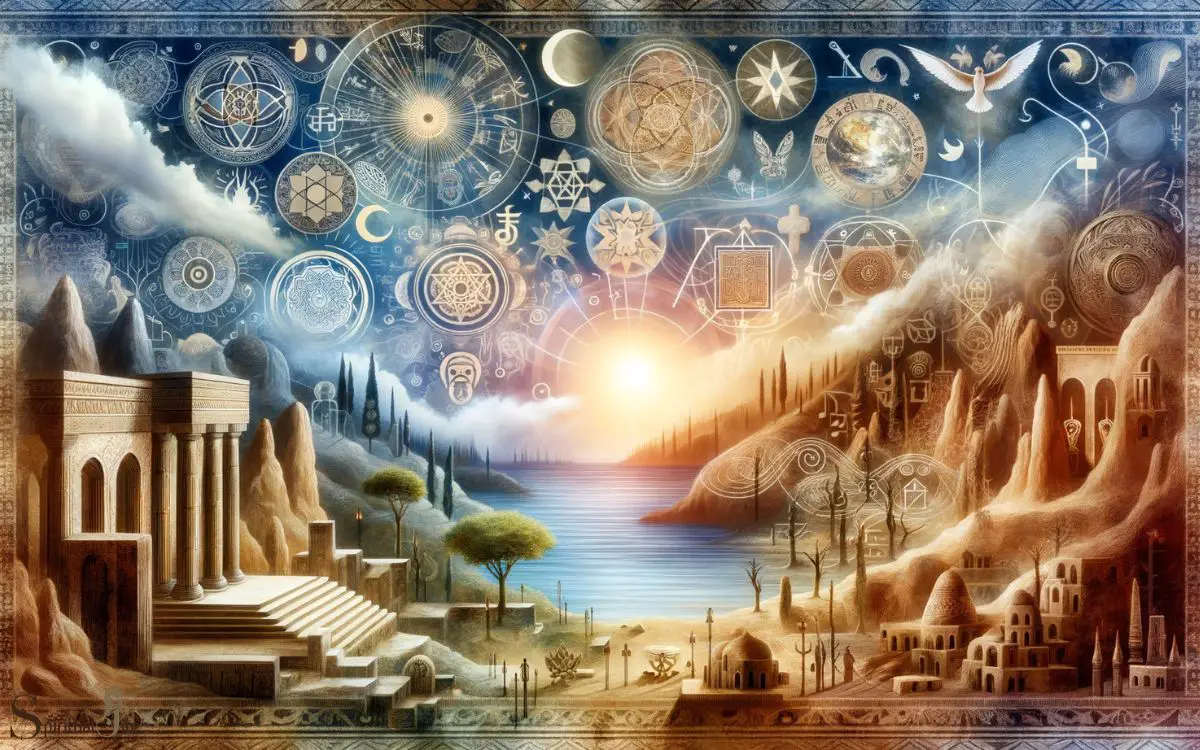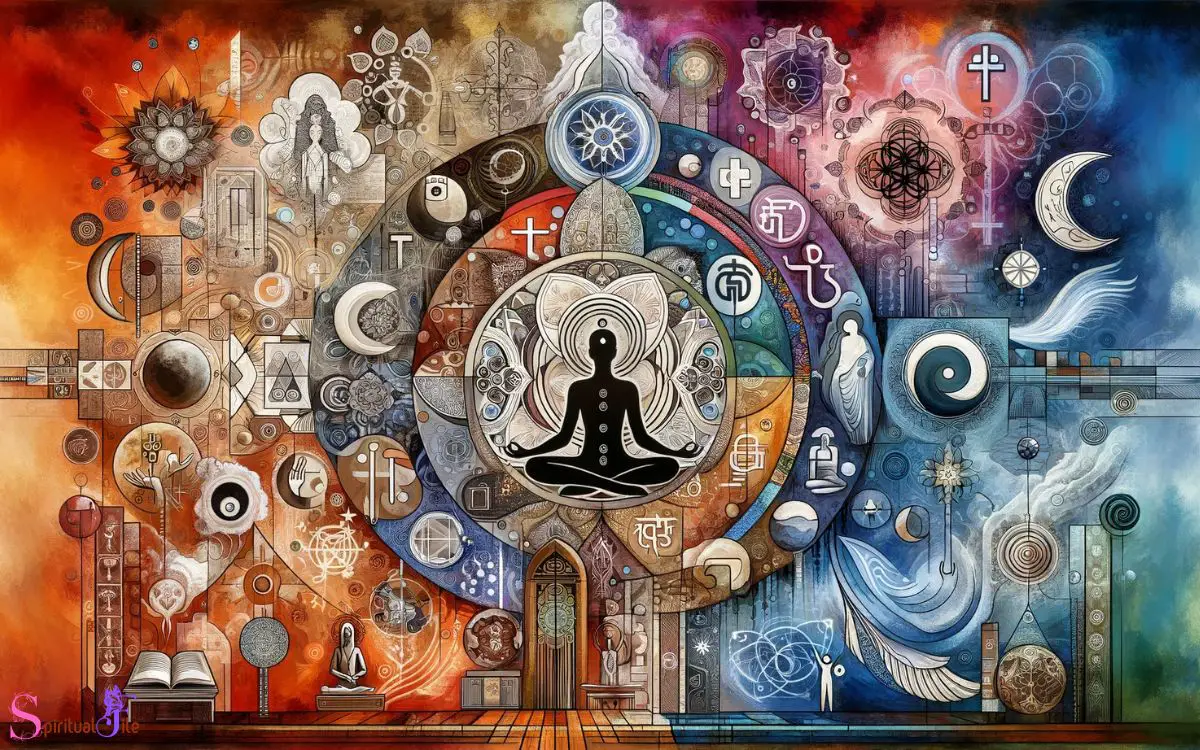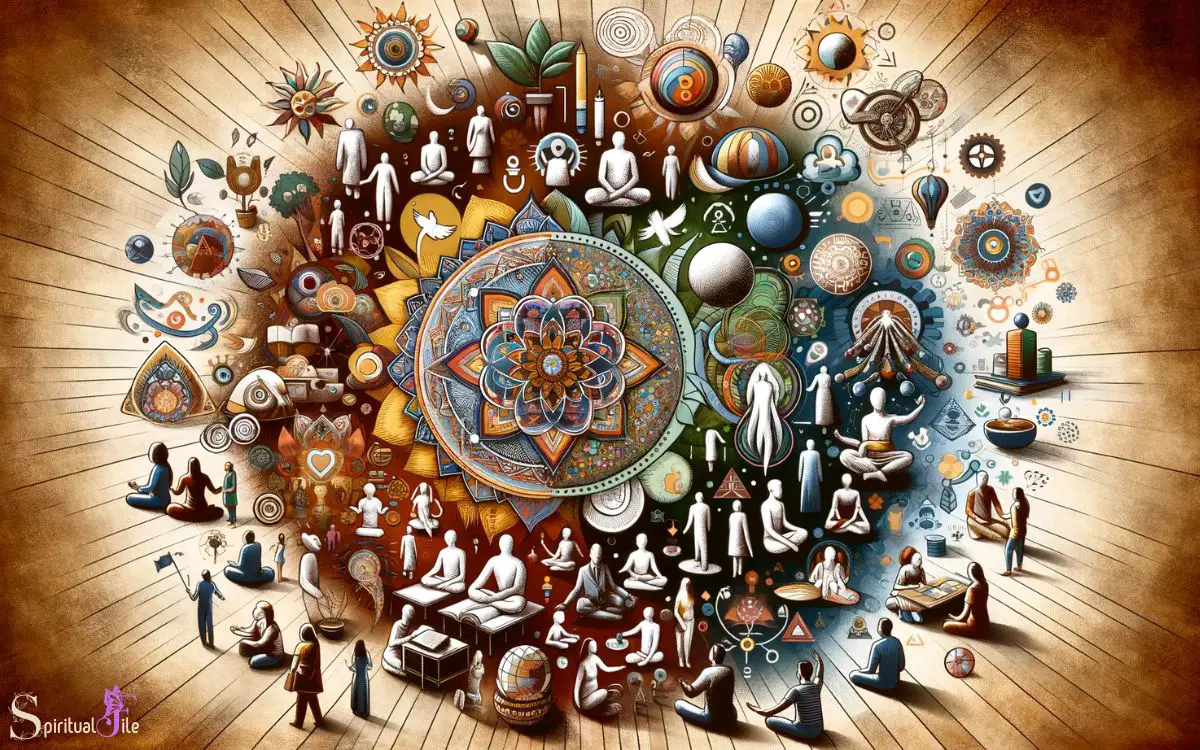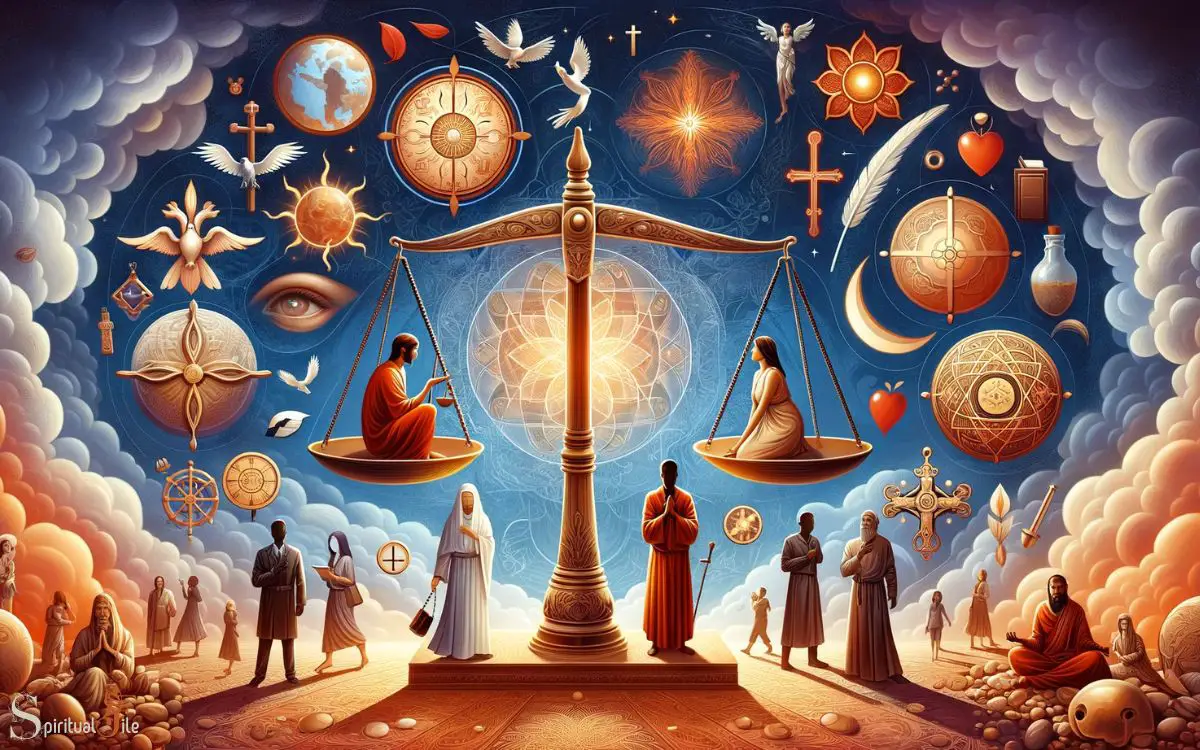Is Religious and Spiritual the Same Thing: No!
No, religious and spiritual are not the same thing, although they overlap in various ways.
Being religious typically denotes adherence to specific organized beliefs and rituals of a particular faith or denomination, while being spiritual suggests a personal, individual search for meaning that may or may not be connected to a formal religion.
Religion and spirituality are interconnected but distinct concepts:
Religion:
Spirituality:
For example, a person attending church services regularly and participating in its sacraments would be engaging in religious activities.
In contrast, someone who meditates and contemplates their place in the universe could be described as spiritual, regardless of whether they belong to a religion.
While religion and spirituality share a quest for the sacred, spirituality’s personal nature contrasts with religion’s communal and organized framework.

Key Takeaway
Historical Origins of Religion and Spirituality

The historical origins of religion and spirituality can be traced back to ancient civilizations and the development of human consciousness.
Our ancestors, grappling with the mysteries of existence, sought to understand the world around them and their place within it.
This quest for meaning led to the emergence of rituals, beliefs, and practices that formed the foundation of what we now recognize as religion and spirituality.
From the ancient Egyptians to the Indus Valley civilization, expressions of reverence for the divine and the unseen permeated human culture.
As societies evolved, so did their spiritual and religious traditions, shaping and being shaped by the values, norms, and experiences of each civilization.
Understanding the historical context in which these beliefs and practices arose provides valuable insight into the diverse tapestry of religious and spiritual expressions we encounter today.
Core Beliefs and Practices

One significant aspect of religious and spiritual traditions is the practice of meditation. Through meditation, individuals seek to connect with their inner selves, higher powers, or the universe.
It is a contemplative practice that allows for introspection, spiritual growth, and a sense of peace. Another core belief and practice is prayer, which is a way to communicate with the divine, seek guidance, and express gratitude.
Rituals and ceremonies are also integral to both religious and spiritual traditions, serving as a way to mark significant life events and honor the sacred.
These practices often involve symbolic actions, communal participation, and the acknowledgment of the transcendent.
These core beliefs and practices are fundamental to understanding the ways in which individuals and communities express their spirituality and religious devotion.
Community and Individual Expression

Community and individual expression in religious and spiritual traditions are manifested through shared rituals, personal beliefs, and communal acts of worship.
For me, participating in shared rituals, such as prayer or meditation, fosters a sense of belonging and connection with others who share similar beliefs.
It’s a powerful way to feel part of a community and to express our collective spirituality. On the other hand, personal beliefs allow me to explore and develop my own understanding of the divine or spiritual realm.
This individual expression is crucial as it gives me the freedom to connect with my spirituality in a way that feels authentic and meaningful to me.
Additionally, communal acts of worship, like attending religious services or gatherings, provide an opportunity to come together with others, reinforcing a sense of unity and shared purpose.
Influence on Moral and Ethical Frameworks

Considering the influence of religious and spiritual beliefs on moral and ethical frameworks, my personal values and decision-making are significantly shaped by these principles.
My religious beliefs provide a clear set of moral guidelines that influence my daily choices and interactions with others.
These beliefs emphasize compassion, honesty, and fairness, which guide my behavior towards others and inform my ethical decision-making.
Additionally, my spiritual beliefs provide a sense of purpose and interconnectedness, driving me to consider the impact of my actions on the world around me.
Both religious and spiritual perspectives encourage me to prioritize empathy, kindness, and integrity in my interactions with others, thereby shaping my moral and ethical framework.
These principles serve as a compass, guiding me to navigate life’s complexities with thoughtfulness and consideration for the well-being of others.
Are Religion and Spirituality Interchangeable Terms?
While some people use the terms interchangeably, there is a distinct difference between religion and spirituality. Religion is defined by organized beliefs and practices, while spirituality is a personal connection to something greater than oneself. Understanding the religion and spirituality distinction is important for individual growth and self-awareness.
Impact on Personal Wellbeing

My religious beliefs significantly contribute to my personal wellbeing, providing a sense of inner peace and guiding my approach to self-care and mental health.
- Emotional Support: My religious community offers me a support system during challenging times, providing comfort and understanding.
- Moral Compass: My faith helps me navigate ethical dilemmas and encourages me to make choices that align with my values, promoting a sense of integrity and purpose.
- Rituals and Practices: Engaging in religious rituals and practices, such as prayer and meditation, helps me find solace and maintain a sense of mindfulness.
- Hope and Resilience: Belief in a higher power instills hope and resilience, enabling me to cope with adversity and uncertainty, fostering a positive outlook on life.
Conclusion
While religion and spirituality share some common elements, they are not the same thing. According to a recent survey, 35% of Americans consider themselves spiritual but not religious, indicating a growing trend towards individualized spiritual beliefs.
Understanding the differences between the two can help us appreciate the diversity of human beliefs and practices, and foster greater respect and understanding in our communities






